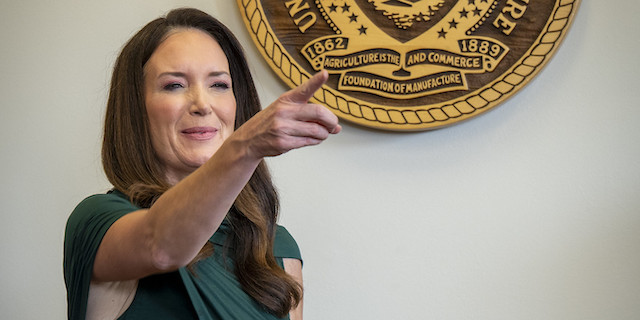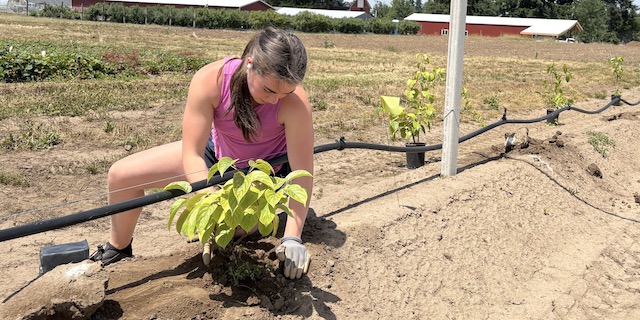Washington gets a new state veterinarian
Published 3:30 pm Thursday, March 10, 2022

- Dr. Amber Itle
OLYMPIA — Dr. Amber Itle can drop the “interim” from her title. She is the new state veterinarian at the Washington Department of Agriculture.
Itle first joined WSDA in 2013 as a field veterinarian and was appointed assistant state veterinarian in 2017. Last summer, she was named interim state veterinarian upon the retirement of Dr. Brian Joseph.
“I am confident that Dr. Itle will be an exceptional state veterinarian. She has years of experience in animal agriculture, is well regarded by our state’s livestock industry and cares deeply about animal health and welfare,” WSDA director Derek Sandison said in a press release. “Dr. Itle has been doing a terrific job these past few months and I look forward to working with her in this permanent role.”
Itle spent 10 years as a livestock, equine and sale yard veterinarian in the private sector before joining WSDA.
“I always tell people, ‘You can’t regulate an industry you don’t understand,’” Itle said. “The only way to understand an industry is to either grow up in it, or work in it.”
One thing that Itle says keeps her up at night is making sure Washington remains an economically viable place to be a rancher, dairy farmer or otherwise involved in animal agriculture.
“Leaning into that challenge and thinking about those social sciences — what is the public perception, how have the public’s values changed over time and how do we need to respond to that as an agricultural community?” she said.
Itle’s father and sister are also veterinarians. Her father celebrates 50 years as a practicing food animal veterinarian this May and still works full-time.
“If that doesn’t inspire someone, I don’t know what does,” she said. “Growing up, seeing the passion he has for agriculture in his work really had an impact on me.”
Her extended family is in the dairy industry.
“Getting to be part of that whole process, from shoveling the poop out of the stalls, to milking the cows, to delivering the products, it changed my life,” she said. “Not only did I have the perspective of what the producer endures and deals with, but also what does the consumer want on the other end?”
Itle commended Washington’s cattle industry for embracing animal disease traceability and supporting efforts to build infrastructure, including adopting RFID tag technology.
“Our mission is to protect animal health and welfare, but part of that is being able to respond, contain, eradicate diseases, and then to be able to recover from that,” she said. “Having that traceability piece on the front end is going to help us do that better.”
Next steps include exercising response plans to maintain continuity of business in the event of a disease to sustain international trade opportunities, she said.
Itle praised the “amazing, forward-thinking, collaborative” leaders in the state’s agricultural industry.
“Once I get a project or an idea, I’m going to take the bull by the horns and I’m not going to let it go until we get it done,” she said. “So if folks out there have things they want to do, come float some ideas my way. I love working with people to get where they want to go.”
Itle wants to partner with ranchers to be part of the solution.
“As soon as I feel like I’m not part of the solution any more, I’m quitting this job,” she said. “At least I can be a placeholder to protect our industry from somebody who doesn’t understand our industry. But we can do so much more than that. We can be more proactive, lean in, see what’s coming down the pike and be prepared.”
Asked her biggest piece of advice for Washington ranchers, she turned the question around.
“I would ask them to tell me what they need,” Itle told the Capital Press.
Itle rattled off the strains ranchers face in general: regulations, wolves and other predators, supply chain disruptions, higher cost of production and the weather.
“I think there’s just so many challenges the ranchers have to deal with day to day that I don’t think I’m in the position to tell them what their problems are,” she said. “I think they have a lot of challenges, and what I would be looking for from those ranchers are ‘What can we do at the state vet’s office to help you overcome one of those challenges?’”






